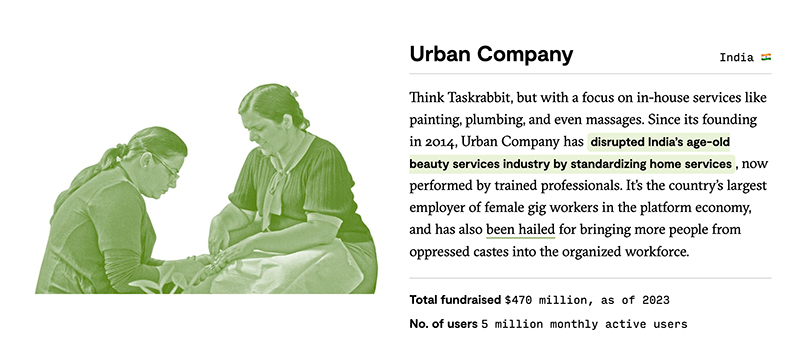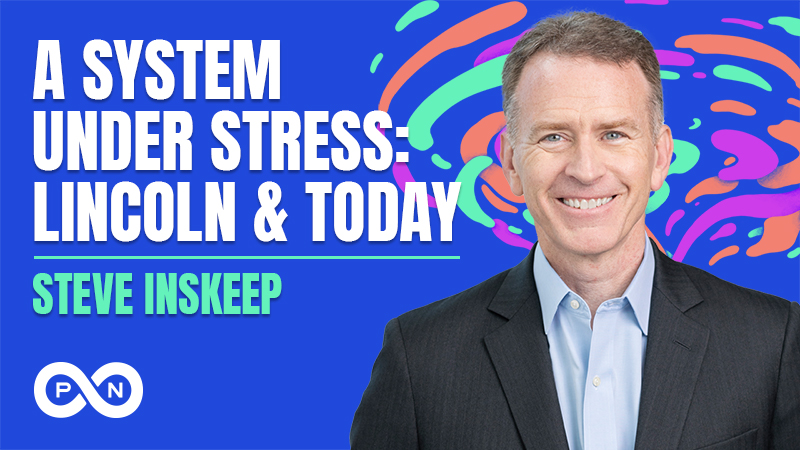Volcanoes are erupting in The Philippines, but on-fire Australia received some welcome rain. The Iran war cries have been called off and The Donald’s military powers are about to be hamstrung by the Senate. Meanwhile, his impeachment trial is starting, and we’re all on Twitter for a front-row seat.
What Could Go Right? Israel’s 9/11
Resources for understanding the complexities, advice on navigating a challenging media landscape, and a plea for a humane response
This is our weekly newsletter, What Could Go Right? Sign up here to receive it in your inbox every Thursday at 5am ET. You can read past issues here.
Israel’s 9/11
The events that have unfolded in Israel and Palestine since the weekend are heartbreaking.
When crises happen, many people misunderstand The Progress Network’s (TPN) mission as to provide some kind of cringey upside. We are not The Toxic Positivity Network. There is a real possibility that this weekend could set off an expanding circle of conflict in the region, and that reality must be faced even as we hope that it will be contained.
With this new-yet-very-old conflict, this newsletter aims to do three things: 1) provide resources for understanding what is going on; 2) offer advice on navigating a challenging media landscape; and 3) emphasize humaneness. This is a very difficult topic to write about in a limited space and one that almost inevitably results in strong reaction; I welcome your thoughts and feedback and ask that we handle discussions with grace.
The basics. They can be skipped if you’re already up to date.
- On October 7th, Hamas militants crossed into Israel from Gaza, carrying out a surprise attack that left, by latest estimates from the Israeli army, over 1,000 people dead and almost 3,000 injured. Around 150 have been taken hostage, including children. It has already been dubbed “Israel’s 9/11” for its scale, psychological and physical toll, and element of surprise. Hamas swept through a music festival and towns and villages in addition to launching several thousand rockets into Israel.
- The Israeli government responded with a “complete siege” of Gaza, cutting off electricity, food, fuel, and water, and beginning rounds of airstrikes. Palestinian authorities say over 1,000 people have died and over 5,000 have been injured. The Israel Defense Forces has called up over 360,000 reservists and declared “a state of alert for war.”
- After occupying Gaza for almost 40 years, Israel pulled out in 2005. Hamas was voted in, and democratic elections were soon after suspended. Unlike previous Palestinian leadership, Hamas does not seek a peaceful coexistence with Israel; its founding charter calls for Israel’s destruction. (PBS has a good explainer of Hamas’ intricacies and how the group is seen within Palestine here.) It is well known that Hamas’ military wing purposefully headquarters itself in civilian buildings.
- Palestine has been described by NGOs as an “open-air prison.” It is heavily dependent on international aid, unemployment is near 50 percent, and resources are scarce. The borders are largely blocked by Israel on one side and Egypt on the other, which the countries say are due to the threat posed by Hamas’ takeover.
- Israeli Prime Minister Benjamin Netanyahu is currently facing heavy criticism for judicial reforms he has enacted the last two years, which critics charge have distracted away from military preparedness. There are also reports that Israel did not heed Egyptian intelligence warning of a coming attack.
If you are interested in a roundup of takes across the Israeli, Palestinian, and American media spaces, TPN Member Isaac Saul’s newsletter on the situation is comprehensive.
Why did this happen now? It may be a reaction to recent Israeli progress in normalizing relationships with nearby countries. The prevailing narrative is that Hamas designed the violent spectacle to “trigger an Israeli overreaction,” as Thomas Friedman explains in The New York Times, “that would lead to massive Palestinian civilian casualties” and thus sink a deal currently on the table between Saudi Arabia and Israel to establish diplomatic relations.
Such an outcome could also put pressure on other Arab nations that had already done so during the Trump administration.
The group Hamas was founded in 1987 and ties into a complex, long history in the region. Two pieces of content that require some time but I found educational are this Coleman Hughes podcast episode with Israeli scholar Dr. Benny Morris, filmed before this weekend, which starts the story from 1881, and TPN Member Ian Bremmer’s TED interview, filmed after this weekend, that talks through the geopolitical backdrop of this moment as well as potential ramifications.
Resisting the outrage cycle. Inevitably, high-octane events like this one lead to two things. One, a firehose of both legitimate information and misinformation that is difficult to wade through. And two, a social media climate that leans heavily on hot emotions. The two are related; the difficulty of number one exacerbates the intensity of number two, when people are stoked by falsities, for instance that Israel has dropped phosphorus/chemical bombs on Gaza (they have not). As Bremmer put it in his TED interview, “It’s increasingly hard to navigate this space without becoming incensed or deranged.”
What can we do to be savvy media consumers in this incendiary and deranging environment? A few things.
First, know thyself. If watching videos from Israel and Palestine is too much, or becomes too much, that is all right. You can take in important information about what is happening without them. Regarding Hamas in particular, there is a reason why its members livestream and post their activities on social media. They are seeking an emotional response in you. The Israeli government has even asked parents to delete their children’s social media, because Hamas may broadcast the execution of hostages.
I have read accounts of people saying that their X feeds are filled with “shocking videos” and nothing else. And I have heard from friends that the TikTok algorithm, if you watch one airstrike video, starts sending them all.
We might not be able to escape bad algorithms, but we can mitigate their effects. It sounds trite, but curating who you are following really helps. I avoid a lot of Internet trash this way. Some ideas: CNN’s Christiane Amanpour has been interviewing everyone from the former head of Israel’s defense intelligence to survivors of the music festival attacked by Hamas to Palestinian doctors, poets, and journalists. BBC journalist Shayan Sardarizadeh has been posting daily threads on X debunking online misinformation about the Israel-Hamas conflict. Ian Bremmer always has incisive commentary on global affairs, and his news organization GZERO Media is on most social platforms. Writer of the News Not Noise newsletter Jessica Yellin also posts frequently on Instagram.
Generally speaking, good journalists will report from a wide range of perspectives. Look for that. As for commentators, legitimate ones list their affiliations and credentials in their bio. Avoid the ones that jam anything and everything into a particular political narrative.
When it comes to on-the-ground videos shared on social platforms, we all know that seeing is no longer believing. My best tip to make sure you’re not falling prey to misinformation is to always check the handle. Is the video from a legitimate, recognizable-to-you news source? If not, google it. A common one I see shared frequently in my network is RT, which is Russian state-controlled television. That’s also the first thing that comes up when you google the name!
If a post or video is shared from a personal handle and particularly if it has new or shocking information, make a mental note to see if it’s later verified by large organizations or a trustworthy journalist. On X, pay attention if a video or post has a “Community Note” on it, which crowdsources fact-checking from users and is enormously useful, although imperfect.
Know that misinformation is being deliberately pumped into media spaces and that is one of the modern tools used in war. See if claims are being traced to a source—and if so, what is it?—or whether they are simply being repeated without an acknowledgement of where they came from. Sometimes these claims end up being true. Sometimes they do not. If you aren’t sure or don’t have the time to figure it out, simply wait.
We can also resist the pressure of adding noise from our own accounts by not posting a hot take of a situation we may not have put the time into fully understanding. I’ve spent the last few days in a mainstream media, X-thread, and history podcast rabbit hole, ingesting layer upon layer of information and perspective. I am positive I have barely scratched the surface. Those of us who are not experts can still form our own opinions. But most of us need not form them in an instant, or share them just a couple breaths later.
I don’t buy the popular premise that posting as everyday Joes is a prerequisite for emotional solidarity. The normal human thing we would have done before the Internet rotted some portion of our brains would have been to reach out offline to people in our life who are closest to all this, and hurting. That remains solid advice.
We all have a duty to respond first with humaneness. Watching Israeli civilians being butchered by Hamas is painful. Seeing the suffering of Palestinians now caught in the military response is painful. It is normal and right for our hearts to reply with compassion to those entangled in this web of violence.
This is the reply that safeguards against another common one, and which has appeared in recent days, which calls for genocide, or justifies terrorism, or unwittingly props up the same evils it protests.
Times of crisis make it difficult to think clearly. They invite us to give in to our anger, hate, and fear. They lie to us that such a reaction makes the suffering of the world easier to bear.
That is a trap. We must keep this in mind even as we witness the worst of what humanity has to offer.
Quick hits
We’re skipping these today to give more space to our main story.
Below in the links section, empathetic AI, biodiverse abandoned coal mines, signs that working from home works, and more.

Did Technology Kill the Craftsman?

Why we should keep making meaningful work amid the speed and convenience of technology | Read more
What Could Go Right? S5 E2

What does it take to create great compromise? Can Abraham Lincoln’s method of talking to people with opposing views work today? And is it possible to find hope through looking at history? Steve Inskeep, host of Morning Edition and Up Next on NPR, and author of Differ We Must: How Lincoln Succeeded in a Divided America, joins the show to break down Lincoln’s political battles, and the historical moment we find ourselves in today. | Listen to the episode
Progress, Please
(Found good news? Tweet at us @progressntwrk or email.)
Other good stuff in the news 🇲🇺
Energy & Environment:
- It’s not all bad news: Wonderful and wild stories about tackling climate change | NPR
- World’s electricity supply close to ‘peak emissions’ due to growth of wind and solar | Carbon Brief
- Red List bird species return after rewilding | BBC
- The surprising biodiversity of abandoned coal mines | Grist
- Ireland: Wind generation exceeds demand for electricity for the first time ever | Euronews
- Shipping giant unveils world’s first vessel using green methanol | CNBC
- UAE opens its first utility-scale wind farm | EcoWatch
Public Health:
- Millions of people could live thanks to new access to TB medication | Mother Jones
- A $40M effort will help to develop mRNA vaccines in Africa | AP
- Pharmacies begin dispensing abortion pills | Politico
- Egypt is on the path to elimination of hepatitis C | WHO
Science & Tech:
- Can AI do empathy even better than humans? Companies are trying it | The Wall Street Journal
- AI predicts 70% of earthquakes a week before they occur | Interesting Engineering
- New fire-safe fuel burns only when exposed to electricity | Interesting Engineering
- Bioengineering breakthrough increases DNA detection sensitivity by 100 times | UMass Amherst
Politics & Policy:
- Mauritius repeals colonial-era anti-same-sex law | Africanews
- Treasury lays out rules for instant EV rebate | E&E News
- California Gov. signs law requiring big businesses to disclose emissions | AP
- Stockholm bans diesel, petrol cars in city center from 2025 | Bloomberg
- Nearly 2,000 Minnesota teens have pre-registered to vote under new law | Axios
Economy:
- Work from home works | Marginal Revolution
- Poverty is back to pre-Covid levels globally, but not for low-income countries | World Bank
- For people in prison, career training begins in a virtual world | Reasons to Be Cheerful
- US added 336k jobs in September, far above expectations | The Hill
TPN Member originals 🧠
(Who are our Members? Get to know them.)
- The ‘civic soft power’ of public places | Deborah Fallows
- Reading banned books out loud | Deborah Fallows
- Nothing defines America’s social divide like a college education | Yascha Mounk
- Don’t call Ibram X. Kendi a grifter | John McWhorter
- The red pill of humility | Arthur C. Brooks
- James Pethokoukis on his new book | James Pethokoukis
- McCarthy and the GOP‘s spiral of radicalization | Ruth Ben-Ghiat
- Climate change: Are we overreacting? | Ian Bremmer
- How to break China’s hold on batteries and critical minerals | Jason Bordoff
- Angus Deaton on America’s deaths of despair | Yascha Mounk
- The ADHD drug shortage is causing real pain | Maia Szalavitz
- Can we talk about Joe Biden? | David Brooks
- America needs a national sales tax | Fareed Zakaria
- The “deaths of despair” narrative is wrong | Matthew Yglesias
- Israel has never needed to be smarter than in this moment | Thomas L. Friedman
Department of Ideas 💡
(A staff recommendation guaranteed to give your brain some food for thought.)
Clicks of desire | The New Atlantis
How the Internet obeys you
Why we picked it: The Internet’s greatest blessing and curse is that it allows us access to virtually all information all the time. Most of us don’t want to change our beliefs because doing so would be akin to changing our identities. So we look for the information that supports what we already think. And when we look for it online, we find it. We even feel affection for it. It comforts us and allows us to keep being who we already are. It also enables us, as Tara Isabella Burton writes in the linked essay, to turn reality into whatever we want it to be. Will we find our way through this problem? I hope so. But to reckon with it, we must first admit it. —Brian Leli
Until Next Time
We asked ChatGPT to come up with a new word for when spouses disagree politically and one of them has to then sleep on the couch. Its response? “Politicouch.” Use it wisely. 🛋️ 😴
Correction: A previous version of this newsletter incorrectly spelled journalist Jessica Yellin’s name.


